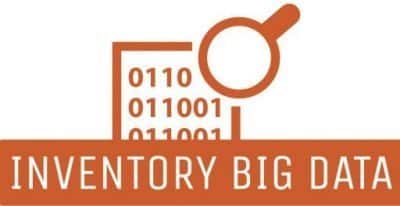Description
Enhancing Supply Chain Resilience through Effective Storekeeping
Introduction
In today’s dynamic business environment, maintaining a resilient supply chain is crucial for companies aiming to remain competitive and responsive to market demands. Storekeepers play a pivotal role in this resilience by ensuring the steady flow of materials and goods, particularly during times of crisis. This article delves deep into strategies that storekeepers can implement to bolster supply chain resilience, emphasizing the importance of effective communication, advanced forecasting, crisis management, and continuous improvement.
Strengthening Supplier Relationships
Building Strong Connections
Creating robust relationships with suppliers is foundational to enhancing supply chain resilience. Storekeepers should engage proactively with suppliers to understand their capabilities, constraints, and reliability. This involves more than just transactional interactions; it requires building a partnership based on mutual trust and collaboration.
Key Strategies:
- Engagement: Regular communication with suppliers to understand their operational strengths and limitations.
- Collaborative Platforms: Implementing real-time data sharing tools to synchronize supply with demand, thereby reducing the risk of stockouts or overstocking.
- Meetings and Workshops: Conducting regular meetings and workshops to foster trust and encourage responsiveness, particularly during demand spikes or disruptions.
Case Study: A Proactive Approach
Consider a manufacturing company that faced frequent supply chain disruptions due to unpredictable supplier delays. By implementing a collaborative platform that allowed real-time visibility into supplier inventory and production schedules, the company was able to synchronize its procurement process more effectively. Regular workshops further enhanced this relationship, leading to improved supplier responsiveness and reduced lead times.
Integrating with Other Departments
Seamless Departmental Coordination
Effective storekeeping transcends departmental silos, requiring seamless integration with procurement, logistics, sales, and production teams. Storekeepers should establish clear communication channels to ensure the smooth exchange of critical information, such as demand forecasts, delivery schedules, and inventory status.
Key Strategies:
- Communication Channels: Setting up robust pathways for exchanging essential information across departments.
- Cross-Functional Teams: Participating in cross-functional teams to align storekeeping activities with broader business objectives and strategies.
Practical Example: Integrated Operations
A leading electronics manufacturer improved its supply chain resilience by integrating its storekeeping operations with its logistics and sales departments. Through regular cross-functional meetings and shared digital platforms, the company achieved better alignment between inventory management and market demand, significantly enhancing its overall supply chain efficiency.
Implementing Advanced Forecasting Techniques
Utilizing Predictive Analytics
Advanced forecasting techniques are indispensable for anticipating market changes and adjusting inventory levels accordingly. Storekeepers can leverage tools like predictive analytics and machine learning to generate accurate demand forecasts, which are crucial for effective inventory planning.
Key Strategies:
- Advanced Tools: Employing predictive analytics and machine learning to derive precise demand forecasts.
- Proactive Planning: Adjusting inventory levels based on comprehensive data analysis, including historical sales data, seasonal trends, and market dynamics.
Real-World Application: Forecasting Success
An apparel retailer facing frequent overstock issues implemented machine learning algorithms to analyze historical sales data and predict future demand. This approach allowed the retailer to optimize inventory levels, reducing excess stock and improving cash flow, while ensuring that popular items were always in stock.
Crisis Management and Contingency Planning
Preparing for the Unexpected
Supply chain resilience heavily depends on effective crisis management and contingency planning. Storekeepers should actively participate in developing and executing plans for potential disruptions, ensuring that the supply chain remains robust even under adverse conditions.
Key Strategies:
- Contingency Plans: Developing and regularly updating contingency plans for various disruption scenarios.
- Supplier Diversification: Diversifying the supplier base to mitigate risks associated with over-reliance on a single supplier.
- Regular Drills: Conducting simulations and drills to prepare the team for real-life crisis situations.
Example: Crisis Preparedness
A pharmaceutical company facing supply chain vulnerabilities due to geopolitical tensions diversified its supplier base and established alternative logistics routes. Regular crisis simulations enabled the storekeeping team to respond swiftly to actual disruptions, maintaining an uninterrupted supply of critical materials.
Continuous Improvement and Adaptation
Embracing Change
The supply chain landscape is constantly evolving, necessitating continuous improvement and adaptation. Storekeepers must be agile, embracing lean principles to minimize waste and adopting new technologies to enhance inventory management.
Key Strategies:
- Lean Principles: Implementing lean methodologies to streamline operations and reduce waste.
- New Technologies: Adopting cutting-edge technologies for better inventory tracking and management.
- Training Programs: Engaging in regular training and development programs to stay abreast of industry best practices and technological advancements.
Continuous Learning: Staying Ahead
A global logistics company implemented an ongoing training program for its storekeepers, focusing on the latest inventory management technologies and lean principles. This initiative not only enhanced operational efficiency but also empowered the storekeeping team to adapt quickly to industry changes.
Conclusion
Effective storekeeping is integral to maintaining a resilient supply chain. By strengthening supplier relationships, integrating with other departments, utilizing advanced forecasting techniques, preparing for crises, and embracing continuous improvement, storekeepers can significantly enhance the resilience of their supply chains. These strategies ensure that companies remain agile and responsive, capable of navigating the complexities of modern supply chain management and maintaining a steady flow of materials and goods even in the face of disruptions



